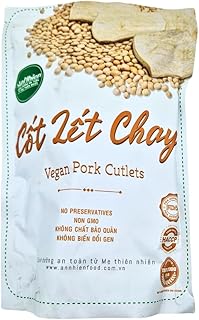The world of meat production is undergoing a significant transformation, with major meat companies increasingly investing in plant-based and cell-cultured meat alternatives to keep pace with evolving consumer preferences. This shift reflects a growing global trend towards sustainable and ethical food choices, driving traditional meat companies to diversify their offerings and explore innovative solutions to meet changing market demands.
One notable player in this space is JBS, the Brazil-based meat giant, which has made strides in the plant-based sector through its brands like Seara and Ozo. JBS’s investments in plant-based and cell-based meat underscore its commitment to staying relevant in the evolving food landscape. Similarly, Plukon Food Group, a major European meat supplier, has expanded its portfolio by acquiring Vega Insiders, a local vegan and vegetarian products business, aligning with the growing demand for alternative protein options.
Tönnies Group, a prominent German meat processor, has ventured into the meat alternatives market through its subsidiary Zur Mühlen Gruppe, which offers a range of meat-free products under brands like Vevia 4 You and Gutfried. This strategic move reflects Tönnies’ recognition of the shifting consumer preferences towards plant-based options. In the US, Tyson Foods has been proactive in embracing the trend towards meat alternatives, investing in companies like Beyond Meat and Memphis Meats to diversify its product offerings and cater to a broader consumer base.
Marfrig, another major player in the Brazilian meat industry, has partnered with Archer Daniels Midland to enter the plant-based category with its Revolution brand. This collaboration highlights Marfrig’s commitment to innovation and sustainability in response to changing market dynamics. Meanwhile, Cargill, a leading US agri-food company, has also shown interest in alternative protein sources, investing in companies like Memphis Meats and Aleph Farms to tap into the growing market for clean meat products.
Nestlé, the world’s largest food maker, has been actively expanding its presence in the plant-based sector with acquisitions like Sweet Earth and partnerships with companies like Impossible Foods. Nestlé’s foray into plant-based meat alternatives reflects its strategic focus on offering diverse and sustainable food choices to consumers globally. In Australia, Maple Leaf Foods has been at the forefront of the meat alternatives market, acquiring companies like Evolved Foods to strengthen its plant-based protein business.
These developments underscore a broader industry trend towards diversification and innovation in response to changing consumer preferences and a growing awareness of sustainability and animal welfare issues. As traditional meat companies continue to invest in vegan and cell-based alternatives, the food landscape is evolving to offer a wider range of choices to consumers seeking healthier, more sustainable, and ethically produced food options. This shift towards plant-based and cell-cultured meats represents a significant transformation in the meat industry, driven by a growing demand for more environmentally friendly and ethical food products.
📰 Related Articles
- Soy-Based Meat Market Set for Strong Growth Amid Shifting Preferences
- Plant-Based Meat Sales Plummet Amid Rising Pro-Meat Movement
- Former Vegetarians Embrace Flexitarianism Amid Meat Resurgence
- Beauty Industry Adapts to Shifting Consumer Preferences and Challenges
- Youth Embrace Live Music Amid Social Media Ban Concerns






